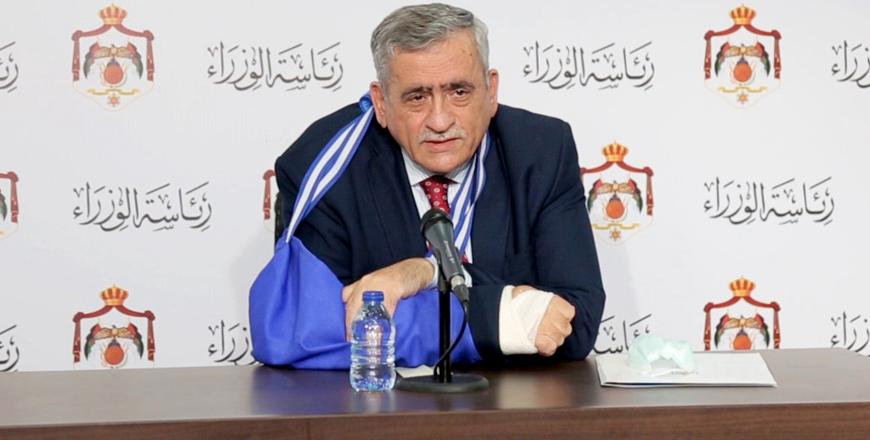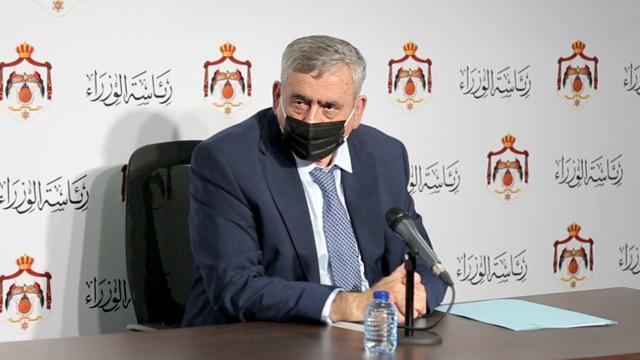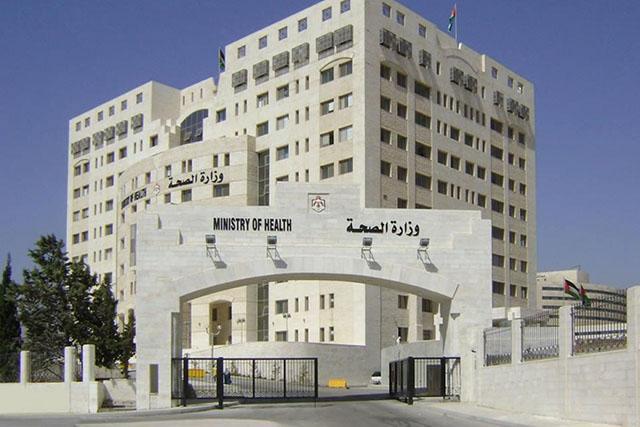You are here
Stability in COVID-19 cases no reason to drop vigilance — health minister
By JT - Dec 07,2020 - Last updated at Dec 07,2020

Health Minister Nathir Obeidat holds a press briefing at the Prime Ministry on Monday (Petra photo)
AMMAN — Jordan remains at the “heart of the fight” against COVID-19 despite stability and a decrease in the number of registered COVID-19 cases during the last two weeks, Health Minister Nathir Obeidat said on Monday.
The minister, along with Wael Hayajneh, secretary general of the Health Ministry for epidemiological affairs and the official in charge of the COVID-19 crisis on Sunday held a press briefing at the Prime Ministry to acquaint the public with the latest developments relating to the COVID-19 crisis.
Construction of field hospitals will be finalised in time, Obeidat noted, adding that medical personnel, who will be operating in field hospitals, are currently under training, the Jordan News Agency, Petra, reported.
In regard to securing the coronavirus vaccine, the minister highlighted that Jordan signed contracts with a number of specialised companies, saying that one of the vaccines will be delivered to the Kingdom in the first quarter of 2021.
Obeidat also stressed that Jordan will only accept safe and effective vaccines that have been approved, underlining that they will be distributed according to priority, most notably frontline health workers and elderly people suffering from chronic conditions.
The cost of undertaking the PCR test will be reconsidered, Obeidat said, noting that a committee has been formed to receive complaints regarding violations of the agreed price point, Petra reported.
In regard to treatment expenses, the minister said that they were determined according to the degree of medical care received at hospitals: First degree, normal, medium, and intensive.
Hayajneh also noted that patients admitted to hospitals are both confirmed and suspected cases of COVID-19, adding that they are treated in separate hospital rooms.
Jordan participated in numerous trials to manufacture the vaccine, Hayajneh noted, adding that the production can extend for a duration of five to seven years.
Hayajneh gave credit to people’s commitment for the stability in the epidemiological curve, calling for continuing to follow the recommended health measures.
Both Obeidat and Hayajneh urged the public to adhere to physical distancing and properly wearing masks.
Related Articles
AMMAN — Health Minister Nathir Obeidat on Monday said that the recent epidemiological curve showed stability in the number of registered cas
AMMAN — Health Minister Nathir Obeidat on Tuesday said that the improvement that the epidemiological curve is currently witnessing, although
AMMAN — The Kingdom’s epidemiological curve is witnessing stability, Health Minister Nathir Obeidat said on Monday.Speaking during a p


















